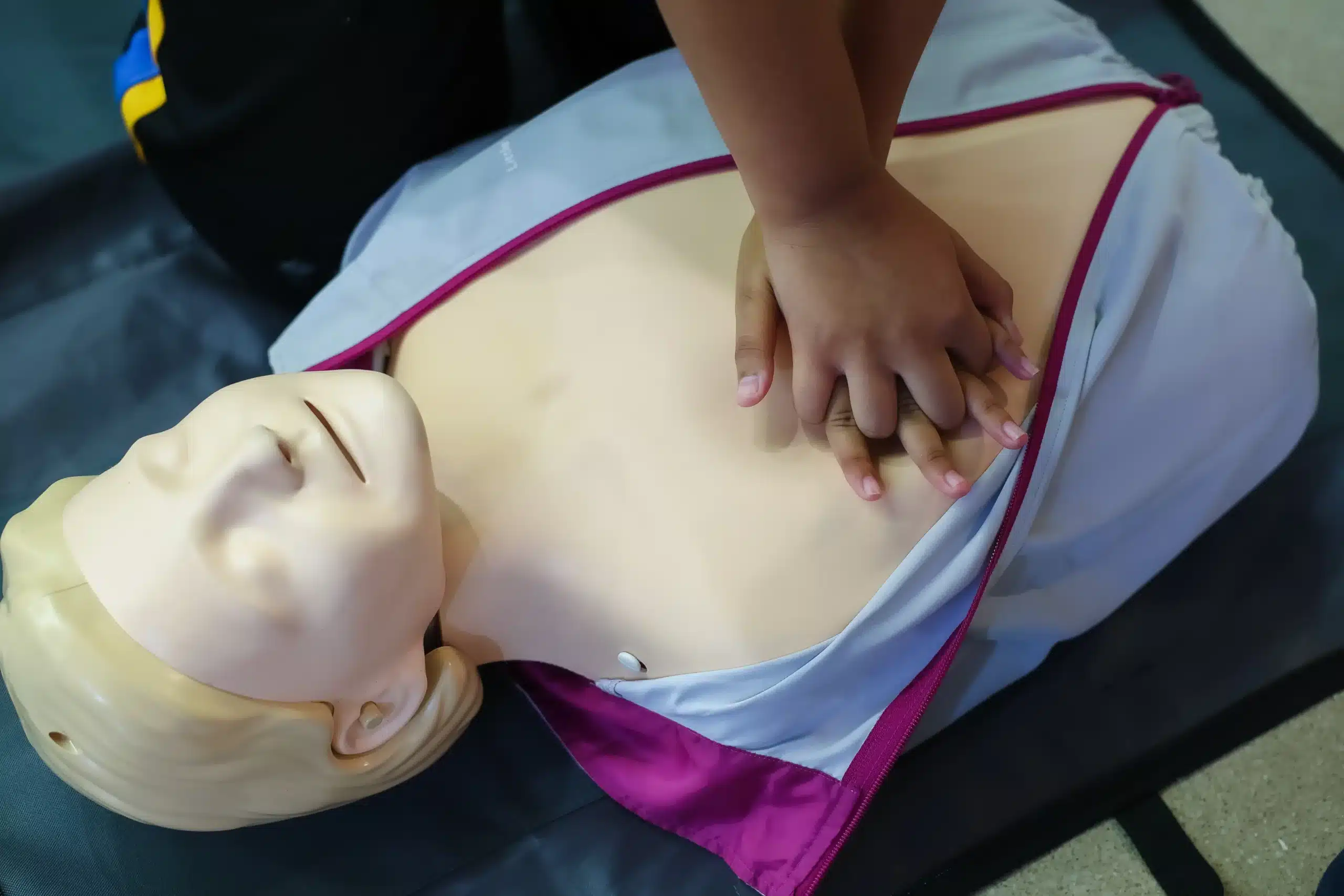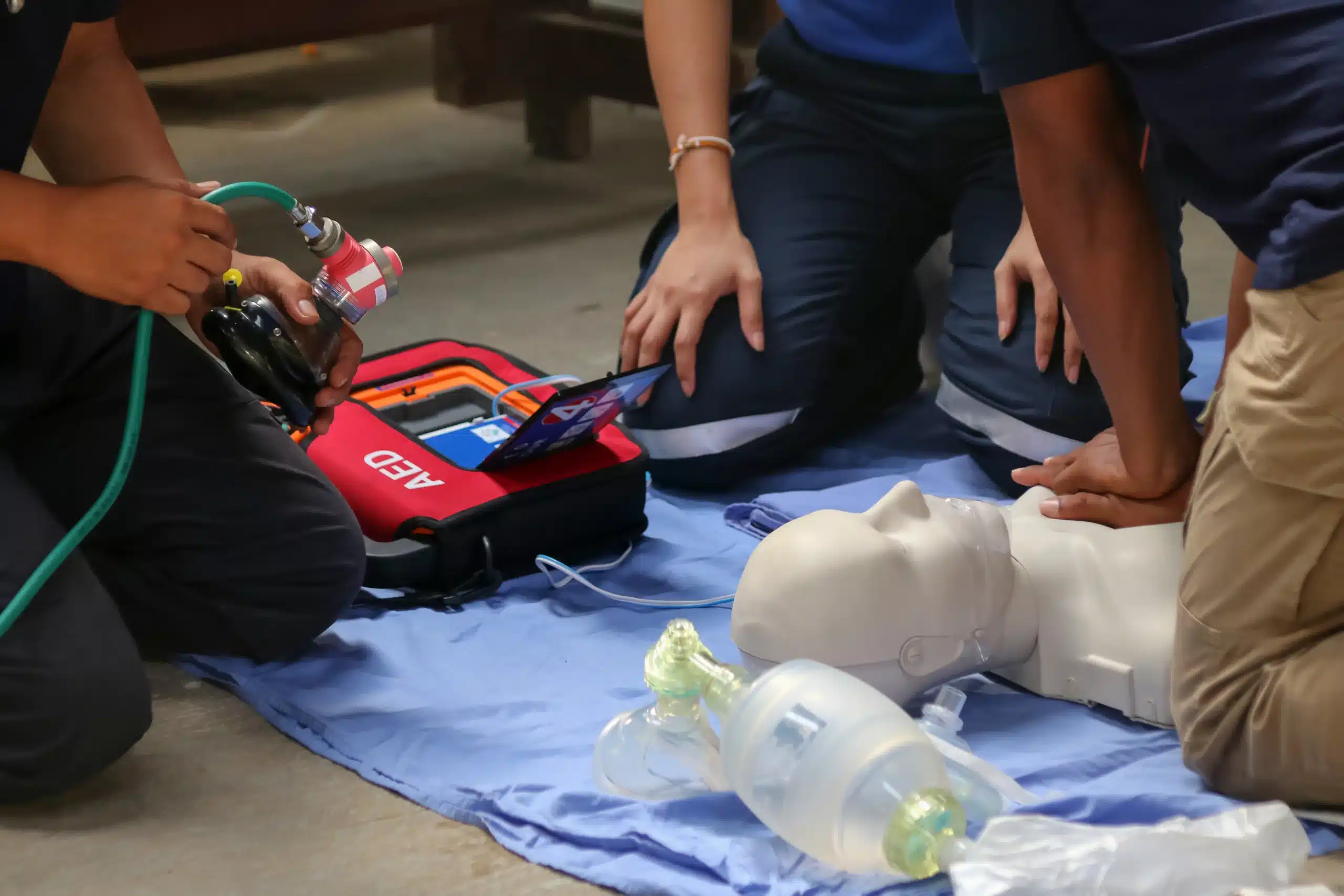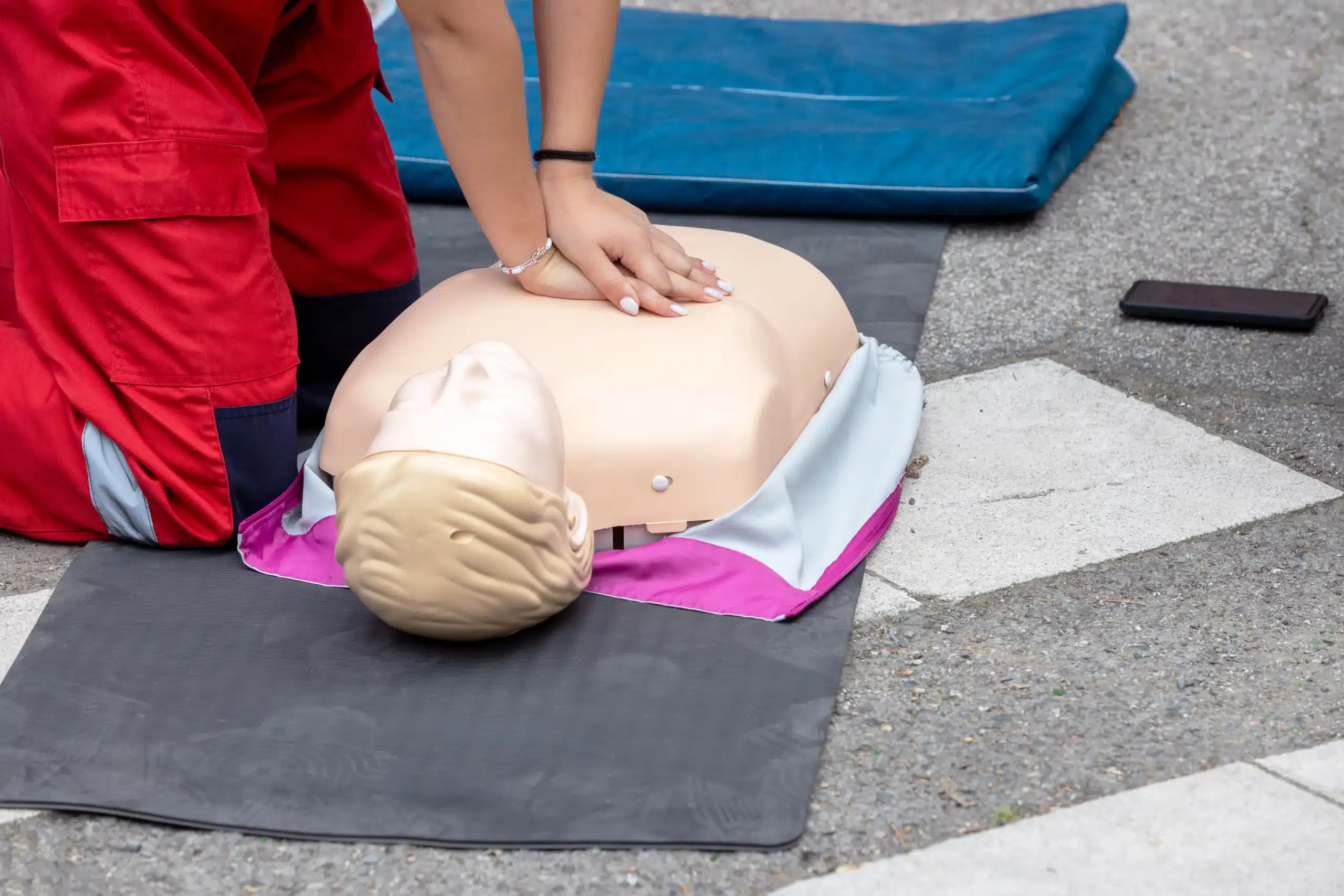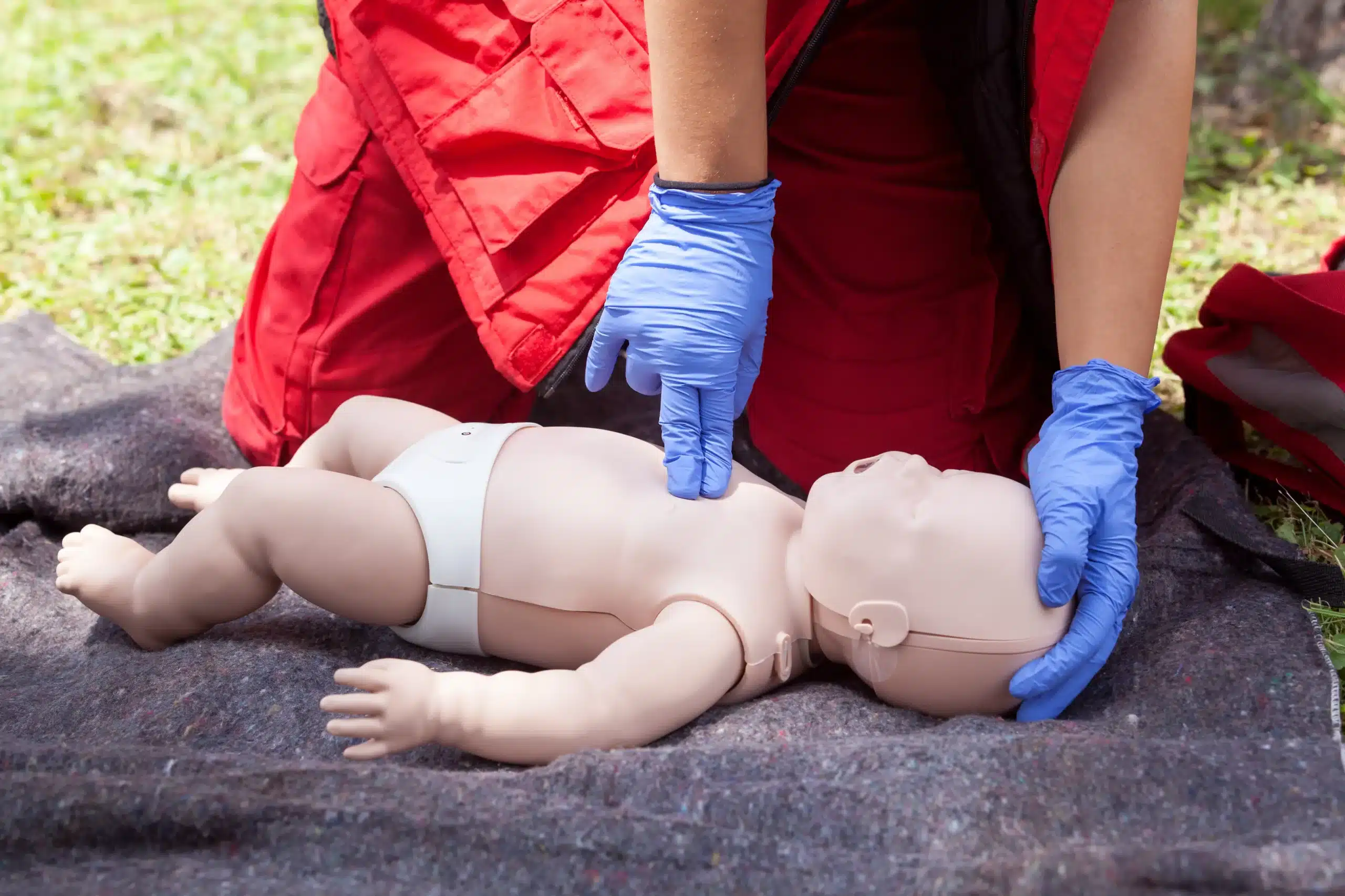When a child’s life hangs in the balance, every second counts. PALS HeartCode certification empowers healthcare providers to act decisively and effectively in pediatric emergencies. This blended learning program combines the convenience of online learning with the crucial hands-on practice needed to master essential life-saving techniques. This article serves as your comprehensive guide to PALS HeartCode in San Rafael, exploring the benefits of certification, course content, and where to find training near you. Whether you’re a nurse, doctor, or other healthcare professional, understanding the value of PALS certification is essential for providing the highest quality of care.
Key Takeaways
- PALS HeartCode blends online learning with hands-on practice: This flexible approach lets you learn at your own pace and build confidence through real-world simulations.
- Certification enhances your healthcare career: It validates your expertise in pediatric emergency care, opening doors to new opportunities.
- Prepare for success with current BLS certification: A solid foundation in basic life support is essential for maximizing your PALS HeartCode training.
What is PALS HeartCode and Why Does it Matter?
Knowing how to respond to a pediatric emergency can be life-saving. PALS HeartCode equips healthcare providers with the knowledge and skills to act quickly and confidently in these critical situations. Let’s explore what this training involves and why it’s so valuable.
What is PALS HeartCode?
PALS HeartCode is the American Heart Association’s blended learning program for Pediatric Advanced Life Support. It combines online coursework with in-person skills practice and testing. This approach ensures healthcare providers develop a strong foundation in pediatric emergency care. You’ll learn essential concepts and practice applying them in a realistic setting. This blended learning style offers flexibility and allows you to tailor the training to your schedule. Check out our RQI classes for more blended learning options. We also offer a low price guarantee on all our courses.
Key Skills You’ll Learn
The online modules of HeartCode PALS cover a wide range of critical topics. You’ll learn to recognize and manage respiratory and cardiac emergencies in infants and children. The program emphasizes systematic assessment, effective resuscitation techniques, and post-resuscitation care. You’ll also gain expertise in recognizing and responding to life-threatening conditions such as shock, respiratory distress, and cardiac arrhythmias. For a comprehensive list of CPR courses available in Northern California, visit our directory.
Blended Learning: Online and In-Person
HeartCode PALS uses a blended learning format, combining online learning with a hands-on skills session. This offers flexibility and convenience. You can complete the online modules at your own pace, then schedule an in-person session to demonstrate your skills. This practical component allows you to apply what you’ve learned in a simulated environment, building confidence and proficiency. For more information on our course offerings and schedules, visit our BLS CPR page. We also offer specialized courses like EMSA Child Care Health & Safety for childcare providers.
Find PALS HeartCode Courses in San Rafael
Ready to get your PALS certification? San Rafael and the surrounding areas offer several convenient options for PALS HeartCode training. This blended learning approach combines online coursework with in-person skills sessions, providing flexibility and a comprehensive learning experience. Let’s explore some of the local providers and what you can expect.
Course Providers
San Rafael CPR Classes
San Rafael CPR Classes offers AHA-approved PALS HeartCode training in San Rafael. They’re known for their commitment to high-quality instruction and convenient schedules. Serving San Rafael, Corte Madera, and Fairfax, they make accessing this crucial training easy for Marin County residents.
Safety Training Seminars
Safety Training Seminars, also located in San Rafael, provides another excellent option for PALS certification. They emphasize flexible scheduling and offer a low-price guarantee, making their courses accessible and budget-friendly. Visit their website for the latest course schedules.
Bay Area CPR
Bay Area CPR offers PALS HeartCode courses in San Rafael as well. With a focus on the American Heart Association curriculum and competitive pricing, they’re a solid option for comprehensive training. Their website provides details on upcoming classes and registration.
Flexible Scheduling
One of the best aspects of PALS HeartCode training is the flexible scheduling. Many providers offer classes daily to accommodate various schedules and preferences. Some providers, like San Rafael CPR Classes, also offer on-site training for groups, making team training simple. Contact them to discuss group discounts and customized training.
Course Duration and Format
PALS HeartCode uses a blended learning format, combining online coursework with a hands-on skills session. The online portion typically takes between three and nine hours to complete, depending on your learning pace and prior experience. This self-paced component lets you study when and where it’s most convenient. The in-person skills check and testing session usually lasts between 30 minutes and four hours, depending on the provider and curriculum requirements. This portion focuses on practicing the skills you learned online, ensuring you’re fully prepared.
Cost and Value of PALS HeartCode Certification
When considering PALS HeartCode certification, understanding the costs and long-term value is essential. Let’s break down the expenses and explore how this investment can significantly benefit your healthcare career.
Course Fees
The total cost for PALS HeartCode certification in San Rafael is approximately $290 at providers like San Rafael CPR Classes. This comprehensive fee typically covers the online portion, the required in-person skills session, and your official certification card. Be sure to check with your chosen provider for their exact pricing. San Rafael CPR Classes offers a low-price guarantee.
Additional Costs
While the initial $290 covers your complete PALS HeartCode certification, remember that these certifications are valid for two years. This means you’ll need recertification every two years to maintain your credentials. Factor this into your long-term professional development budget.
Invest in Your Healthcare Career
Earning your PALS certification is more than just fulfilling a requirement; it’s a strategic investment in your healthcare career. Many hospitals, clinics, and other healthcare organizations require PALS certification for their staff, making it a valuable asset when applying for jobs and other healthcare positions. It signals your dedication to providing high-quality pediatric care and your preparedness to handle emergencies effectively. This can open doors to new opportunities and boost your credibility within the healthcare community. Plus, the skills and knowledge you gain will empower you to confidently respond to critical situations involving infants and children, making a real difference in their lives. You can learn more about what to expect from online PALS certification.
Benefits of PALS Certification
Getting your PALS certification is a significant step, so you naturally want to make sure it’s worth it. Here’s a closer look at how
Improve Your Emergency Response
PALS certification equips healthcare providers with the essential skills to manage pediatric emergencies. It’s not just about knowing the steps, but understanding the why behind them. This comprehensive training covers everything from recognizing early signs of deterioration to providing advanced life support. With PALS, you’ll be prepared to respond swiftly and effectively in critical situations.
Advance Your Career
In today’s competitive healthcare landscape, PALS certification can give your career a boost. Many hospitals and clinics require PALS certification for their staff, especially those working in critical care or emergency departments. It shows employers you have the specialized knowledge and skills to provide high-quality care to young patients. Whether you’re aiming for a promotion or seeking a new job, PALS certification can give you a competitive edge. This specialized training demonstrates your commitment to continuing education, a highly valued asset in the healthcare field.
Build Confidence in Pediatric Care
Beyond the technical skills, PALS certification instills confidence. Knowing you have the training to handle pediatric emergencies makes a real difference in how you approach your work. The PALS HeartCode course uses realistic scenarios and simulations to build your skills and improve decision-making. This hands-on training helps you develop essential critical thinking skills, so you can act decisively under pressure. The flexible, web-based learning format of the HeartCode program lets you learn at your own pace and review material as needed, further building your understanding and confidence.
Prepare for Your PALS HeartCode Course
Getting ready for your PALS HeartCode course is straightforward. This blended learning experience combines online learning with hands-on skills practice. Here’s what you need to know to prepare:
Prerequisites
Before you enroll in a PALS HeartCode course, you should have a current American Heart Association (AHA) BLS Provider card. You can find BLS courses in San Rafael and surrounding areas. It’s also recommended to have a basic understanding of ECG rhythms and pharmacology as they apply to pediatric emergencies. This foundation will help you get the most out of the PALS training.
What to Expect
The PALS HeartCode course uses a blended learning approach, combining online coursework with a required in-person skills session. This format allows you to learn the material at your own pace online, then demonstrate your skills in a real-world setting. The online portion covers essential concepts and simulations, preparing you for the hands-on practice and assessment in the in-person session.
Certification Process and Validity
After successfully completing both the online modules and the hands-on skills session, you’ll receive your AHA PALS Provider course completion card. This certification is valid for two years. Make sure to complete the course survey after finishing all required content to receive your certificate.
Tips for Success
The online portion of the HeartCode PALS course typically takes between six and nine hours to complete, depending on your prior experience. The in-person skills check-off usually lasts around three to four hours. To make the most of your learning experience, review any pre-course materials provided and come prepared with any questions. Check out our low price guarantee to ensure you’re getting the best value for your training.
Related Articles
- PALS HeartCode Corte Madera: Online & Skills Session – San Rafael CPR Classes
- ACLS HeartCode San Rafael: Your Certification Guide – San Rafael CPR Classes
- PALS Certification Corte Madera: Your Comprehensive Guide – San Rafael CPR Classes
- AHA PALS Classes in San Rafael, CA – San Rafael CPR Classes
- Online PALS Classes in Fairfax: Your Guide – San Rafael CPR Classes
Frequently Asked Questions
What is the difference between PALS and BLS?
PALS (Pediatric Advanced Life Support) builds upon the foundational skills learned in BLS (Basic Life Support). While BLS focuses on immediate life-saving techniques for all ages, PALS delves into the specialized care of infants and children. PALS addresses the specific physiological differences and unique emergency situations encountered in pediatric patients. It equips healthcare providers with advanced skills in areas like airway management, rhythm recognition, and medication administration tailored to young patients.
How long does it take to complete the PALS HeartCode course?
The PALS HeartCode course combines online learning with an in-person skills session. The online portion typically takes between six and nine hours to complete, depending on your learning pace and prior knowledge. The in-person skills check and testing session usually lasts between 30 minutes and four hours, allowing you to demonstrate your proficiency in a practical setting.
How long is the PALS certification valid?
Your PALS certification is valid for two years from the date of completion. To maintain your credentials and stay up-to-date with the latest guidelines, you’ll need to recertify every two years.
What are the prerequisites for taking PALS HeartCode?
Before enrolling in a PALS HeartCode course, you should have a current American Heart Association (AHA) BLS Provider card. A basic understanding of ECG rhythms and pharmacology related to pediatric emergencies is also recommended to maximize your learning experience.
Where can I find PALS HeartCode courses in my area?
Several organizations offer PALS HeartCode training. A good starting point is to search online for “PALS HeartCode courses” along with your city or region. You can also check with local hospitals, healthcare training centers, and American Heart Association training sites. San Rafael CPR Classes offers PALS HeartCode training in San Rafael, Corte Madera, and Fairfax, CA.





